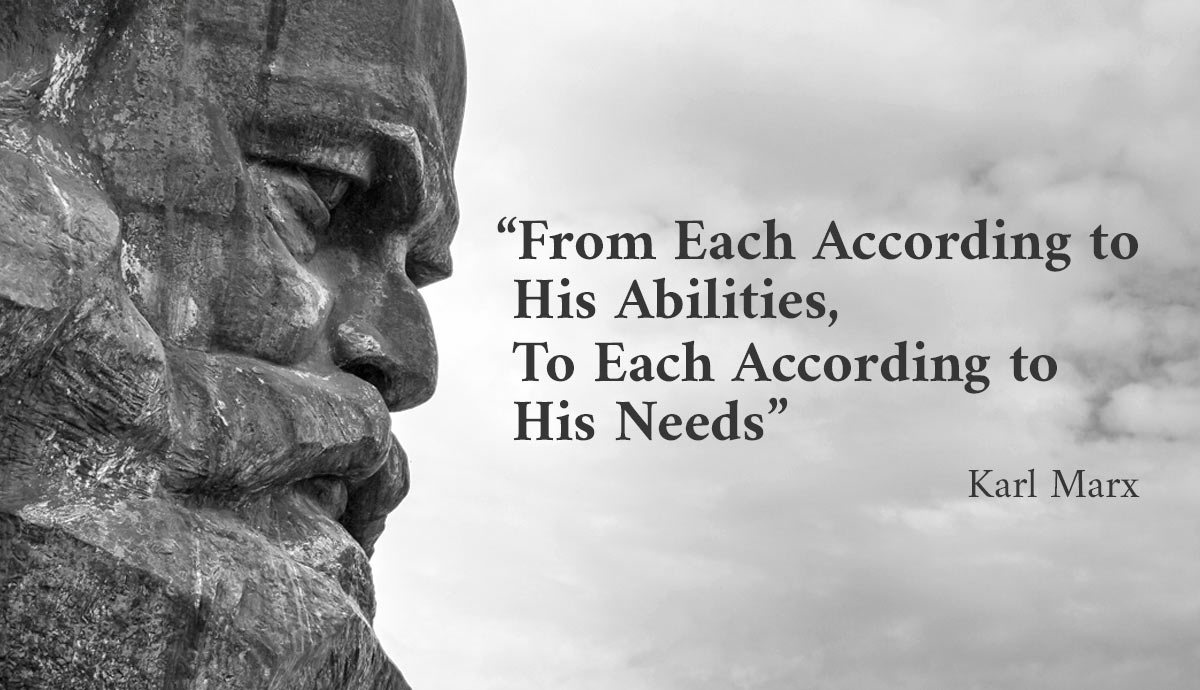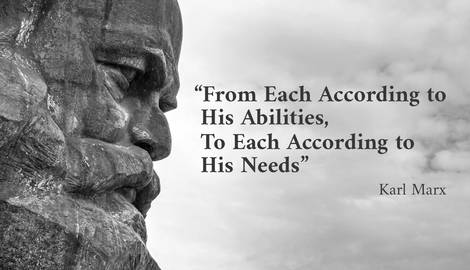
The personality and works of Karl Marx still spark mixed feelings today, largely due to the failed communist project. However, few would deny that he was an outstanding economist.
The global economic crisis of 2008 resulted in more than a few students and lecturers studying the main work of the philosopher–Capital. It turned out that some chapters were strikingly relevant in the age of computers and the internet.
Several ideas espoused by Marx changed the world for better or worse. So what are his most famous sayings?
1. “The Philosophers Have Only Interpreted the World, in Various Ways. The Point, However, Is to Change It”

The first quote we want to start with embodies Marx’s philosophy and argues that it is not enough for philosophy to be mere contemplation–it has to be a call for transformation.
Marx says that throughout history, philosophers have interpreted the world but not changed it. They have thought about the world in different ways but have not striven to transform it. In other words, they may have been good at theory–seeing things from many angles–but they were useless at practice.
To understand why this quote is so profound, we need to go back to Marx’s idea of dialectical materialism. This argued that society evolved through economic forces conflicting within each stage of history; these conflicts led to revolutions that transformed social and economic structures.
By understanding those underlying material conditions and historical processes, people could work towards a society free from oppression and exploitation.
Marx’s emphasis on “changing the world” wasn’t just empty sloganeering: his entire life was dedicated to political activism aimed at overthrowing capitalist systems and winning rights for working people.
His writings, such as Das Kapital or The Communist Manifesto, were blueprints for revolution–road maps illustrating how he believed societies needed to change in order for all members of them to truly flourish.
One powerful example of “changing the world” in accordance with Marx’s philosophy can be seen today within labor movements around the globe.
Workers organizing themselves against low pay or systemic inequality are often drawing on Marx’s critique of capitalism as inherently exploitative when they demand better wages, improved workplace safety standards, or collective bargaining rights.
What does changing the world mean? Does it mean getting beyond abstract theorizing? Or planning? And engaging? It means putting yourself forward as what a philosopher should really be: an active guide for transformative praxis who understands how ideas shape reality.
2. “Workers of the World, Unite! You Have Nothing to Lose but Your Chains!”

One of Marx’s most famous quotes is, “Workers of the world, unite! You have nothing to lose but your chains!” This quote highlights Marx’s focus on the working class and their struggle against capitalist oppression. It succinctly captures his ideas about class struggle, critique of capitalism, and vision for a socialist society.
Marx believed that in a capitalist economy, the bourgeoisie–or capitalist class–were able to exploit workers by taking ownership of the surplus value generated through their labor. Workers often faced long hours, low pay, poor conditions, and limited control over their work. This created a system where they were alienated from both what they produced and their own humanity.
In this quote, Marx calls for workers across different nations to come together in solidarity against those oppressing them. While individual workers may have little power or influence within the existing economic structure–which he called capitalism–when united, they could become an unstoppable force.
By putting aside national or ethnic divisions and recognizing that they had shared economic interests that needed protecting, workers could challenge exploitation.
The phrase “nothing to lose but your chains” symbolizes both what can be gained from collective action by workers under capitalism and how dire things will remain if such gains are not made: it alludes to liberation from oppressive labor conditions.
Examples illustrating Marx’s call for worker unity can be found throughout history: trade unions campaigned collectively for better pay, improved conditions, shorter working days, recognition of specific rights, etc. They recognized that individuals acting alone enjoyed limited bargaining power yet became powerful once unified.
Showcasing contemporary movements inspired by Marxist principles towards worker solidarity might include the Fight for $15 in America or garment factory worker protests in developing countries, among others.
Marx’s quote is a rallying cry encouraging individuals who sell their labor as a means of subsistence (workers) to see themselves as part of a global movement fighting exploitation at work.
3. “The History of All Hitherto Existing Society is the History of Class Struggles”

According to Karl Marx, warring economic classes have been the movers of social evolution since time immemorial. At each and every stage in history’s developmental journey, there is a dominant mode of production that is defined by class relations.
These class relations control even the very structure and relation between power and the distribution of wealth within society.
Marx theorized human societies as evolving from primitive communism through slavery and feudalism all the way to capitalism, with conflicts between classes acting as forces of change at each phase:
- Primitive Communism: The early human societies held properties in common, and labor was performed collectively. Agricultural activities led to surplus; thus, social stratification began. Conflicts started emerging amongst those accumulating wealth from the peasants working on their land.
- Feudalism: Serfdom was characteristic of this stage; lands belonged to nobility (feudal lords). Very often, conflict about land boundaries and access rights to services such as milling or baking ovens for bread making, among others, occurred.
- Capitalism: At this stage, the whole of society is fundamentally divided between capitalists (bourgeoisie), who own the means of production, and workers (proletariat), who have nothing but the labor power to sell in exchange for wages. The capitalist system depends on extracting surplus value from workers’ labor–an inherent contradiction leading to conflict.
Seeing all past societies as composed of classes in struggle undermined capitalism because it dismissed present claims that it was ‘natural’ or ‘eternal.’
A capitalist society is exploitative by its very nature once you see how everyone’s position is determined by their role within a system built around extracting profit from other people’s work days.
Marx thought that these internal contradictions would eventually cause the proletariat to overthrow the bourgeoisie by means of revolution; then, a socialist society could be constituted in which the means of production were owned collectively by workers.
To assert, therefore, that history has always been determined through class struggles suggests things don’t have to remain as they are. Being conscious of this might make individuals think more critically about the socioeconomic status quo and believe it is potentially changeable.
4. “From Each According to His Abilities, to Each According to His Needs”

This quote encapsulates Marx’s vision of a socialist society, where capitalism’s ingrained inequalities are transcended by cooperation and an equitable distribution of resources.
Marx believed that, in such a society, the working class would collectively own and control the means of production. People would contribute according to their abilities–working as they wished or were skilled–with each person valued for their unique talents.
The quote captures two key elements. “From each according to ability” indicates that individuals should work to the best of their skills, interests, and talents.
“To each according to need” suggests that in a communist society, people’s basic needs would be met unconditionally. Each individual would receive what they need for a dignified life–food, shelter, education, healthcare–without having to rely on market mechanisms or money exchange.
To help illustrate this concept further, imagine a community garden where people come together and farm collectively. Everyone contributes based on ability: those who know how might sow seeds; others might water plants because they have green fingers. When it comes time for harvest, produce is distributed based on need rather than personal wealth or ownership.
It challenges excessive inequality in capitalist systems as well as meritocracy, ideas that produce unequal outcomes based on hard work alone. It also aims at redistributing resources more equally so communal collaboration replaces competition for personal gain.
Whether it is practical or not when scaled up across society has been subject to extensive debate among critics who see problems with incentive structures and resource allocation.
Regardless of whether implementing this principle becomes reality one day, Marx offered it up as an aspirational goal towards which societies ought to strive: an egalitarian world where individuals give all they can give and take all they need.
5. “Religion Is the Opium of the People”

Finally, this quote exemplifies Marx’s belief that religion is a kind of social control; it helps to hide the economic and social inequality in capitalist societies.
In capitalism, according to Marx, people are made miserable by alienation and exploitation. Religion provides comfort and distracts them from their poverty by offering the hope of a different life or rewards after death.
The comparison with opium suggests that religion works like a drug to make people unable to feel their own pain. Just as opium stops you from feeling physical suffering without doing anything about its cause, religious beliefs provide an illusion of comfort without challenging the material structures causing human suffering.
Let’s look at an example: When times are hard, economically, or socially oppressive, religious institutions often give support and solace to those affected. They offer rituals, prayer, and promises of divine justice or salvation.
These spiritual activities may provide short-term relief from distress but ultimately discourage individuals from questioning or trying to change their situation–what Marx might call diverting attention away from economic exploitation.
It is worth noting, though, that not all aspects of religion were seen by Marx as only bad. He acknowledged how faith can be used as a way for oppressed groups particularly to bond together–liberation theology movements have emerged using religious ideas joined with grassroots struggles for social justice around the world.
However, his focus was on its potential role in oppression by keeping things as they are. By looking elsewhere than economic exploitation, religion becomes complicit in maintaining inequalities in society because it distracts people from understanding where power lies and how they could organize together for change.
So What Does Marx Teach Us?

The ideas expressed in these quotes by Marx provide significant insights into his philosophical framework. They emphasize various crucial aspects of his thinking.
First, he insists that philosophy should not stop at interpretation and understanding but should instead work to change the world–a principle known as praxis or the unity of theory and practice.
Second, he looks critically at religion as an instrument of social control that numbs people to their exploitation by providing consolation and distracting them from the more important matter of fighting for their rights.
Third, he stresses the importance of workers uniting. Far from being powerless victims, they are potentially a mighty force capable of challenging capitalism itself: “They have nothing to lose but their chains.”
Fourth, he calls for resources to be distributed according to need and ability rather than the whims of capitalist markets–what has become known as “from each according to his abilities, to each according to his needs.”
Taken together, these ideas show Marx’s commitment both theoretically and practically to justice, his fundamental critique of how capitalism works, the imperative for collective action, and a vision where everyone can collectively transform society by combining theory with practical change.










